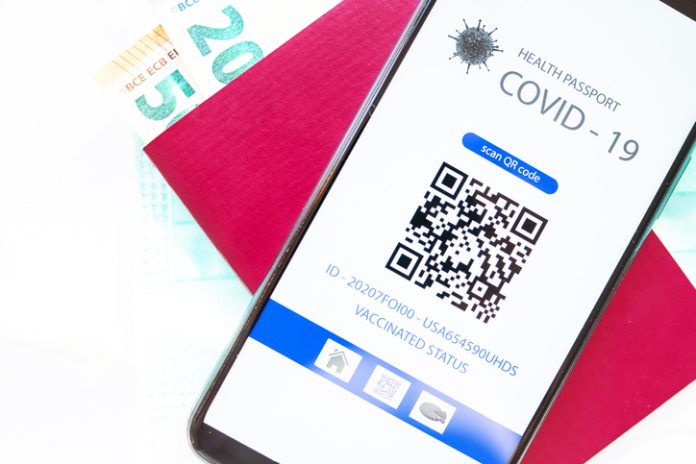Vaccine passports – once seen as a way to encourage inoculation and to stem the spread of COVID-19 – are increasingly falling into disfavor, as more governors view them as an intrusion into the personal freedoms of ordinary people.
A case in point is Texas Republican Governor Greg Abbott, who in April issued an executive order banning state agencies, political subdivisions, and other organizations receiving public funds from creating vaccine passports or otherwise requiring people to provide proof of a COVID-19 vaccine in order to receive services.
“Texans are returning to normal life as more people get the safe and effective COVID-19 vaccine. But as I’ve said all along, these vaccines are always voluntary and never forced,” Abbott said in a video announcing the executive order. “Government should not require any Texan to show proof of vaccination and reveal health information just to go about their daily lives. That is why I have issued an executive order that will prohibit government-mandated vaccine passports in Texas. We will continue to vaccinate more Texans and protect public health – and we will do so without treading on Texans’ personal freedoms.”
Abbott is by no means an “anti-vaxxer,” having taken his shot live on TV.
Desantis Signs Passport Ban into Law
Florida Gov. Ron DeSantis (R) went even further than Abbott in rejecting vaccine passports. On May 3, he signed into law SB 2006, which, among other things, codifies his April executive order banning vaccine passports. That executive order blocked any business or government entity from requiring proof of COVID-19 vaccination.
“In Florida, your personal choice regarding vaccinations will be protected, and no business or government entity will be able to deny you services based on your decision,” DeSantis said in a statement.
Florida’s new law puts Gov. DeSantis on a collision course with the cruise industry, which operates from several ports in the Sunshine State and is gearing up to resume operation after a long and costly shutdown during the pandemic. Cruise lines want to require vaccine passports as a means of assuring passengers that traveling is safe. But DeSantis insists that the industry must abide by Florida law and says it will face fines if it sticks with requiring proof of vaccination. The dispute might have to be resolved in court, or the cruise industry might simply pay the fines as a necessary business expense in the hope of luring passengers back to their ships.
Proponents of vaccine passports, also known as vaccine credentials, argue that they secure safety in the workplace, with many companies requiring them as a condition for employees to return to newly reopened offices (see related article TBA). But opponents, echoing Abbott, say they are an infringement on personal liberties and raise questions about the confidentiality of personal health data.
Vaccine passports can take the form of a smartphone app (digital health passports) or a paper or card attesting to the holder’s having been vaccinated. When people are vaccinated in the U.S., they are given proof in the form of a CDC-issued card. In March, New York became the first state to adopt a vaccine passport, called Excelsior Pass. The app is free and voluntary for New Yorkers to confirm recent negative PCR or antigen test results as well as proof of vaccination. In mid-May, Hawaii launched a vaccination verification program to support inter-county travel, beckershospitalreview.comreported.
States Shunning Vaccine Passports
In addition to Texas and Florida, other states – either through executive orders, legislation, or governors’ pronouncements – have said no to vaccine passports. They include Alabama, Arizona, Georgia, Idaho, Indiana, Iowa, Montana, Nebraska, Ohio, South Carolina, Tennessee, Utah, and Wyoming. Still other states have debated the question of vaccine passports but not yet adopted them nor banned them outright. They include California, Connecticut, Illinois, Louisiana, North Carolina, and Pennsylvania.
Bonner R. Cohen, Ph.D., (bcohen@nationalcenter.org) is a senior fellow at the National Center for Public Policy Research.





















